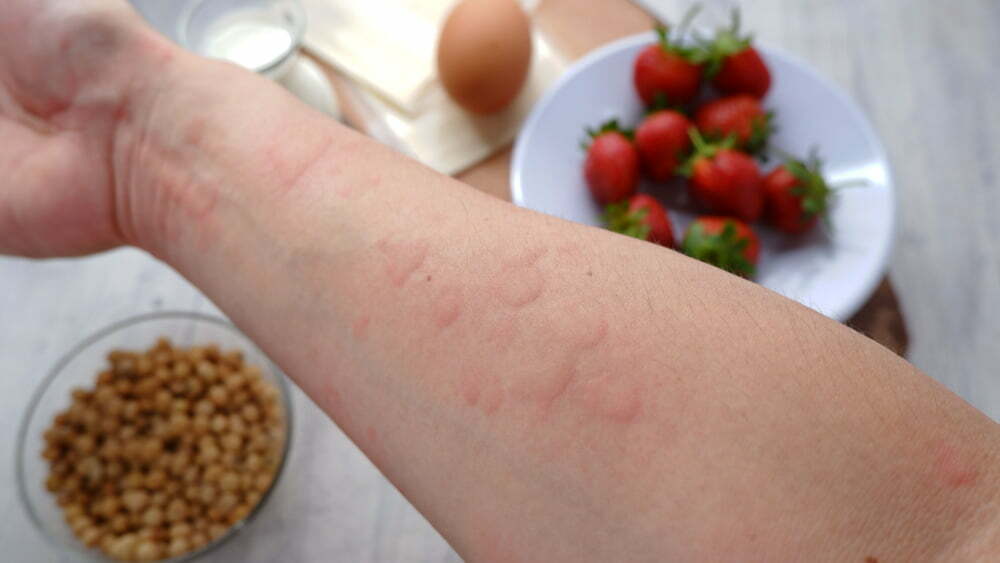Food allergies in babies are dangerous diseases that are concerning for parents and caregivers. This happens when your baby’s immune system identifies any food that is dangerous for him and reacts with the body. It shows many signs when it occurs, and it affects the baby’s health and well-being. If this is not treated immediately and with precaution, it may cause a more serious condition in your baby and may lead to death. Here we can find out all the problems and solutions of Food allergies in babies.
Definition of Food Allergies
This happens when you give food to a baby, and their immune system interacts with this and is sensitive to it. If your baby eats food that is an allergen for him, it releases chemicals that are harmful to the baby. Many times the signs of this allergy are irritation in the skin and other life-threatening problems, which are dangerous or the health of the baby.
Causes of Food Allergies in Babies
We can not find the main reason for food allergies in your baby, but some factors that cause food allergies in babies. Here I can explain all of these factors.
- Genetics: Many studies show that if any person in the family has an allergy to anything, asthma, that is the reason this disease is passed down to your baby and any other family member.
- Immature Immune System: When a baby is born, their immune system is not mature and not able to handle hard food. If you give any food that interacts with the immune system, it can cause allergies in babies.
- Environmental Factors: Many people have allergies to changes in the environment, and others. Many people have interacted with dust and start sneezing.
- Gut Microbiome: If you imbalance the gut bacteria in your baby, it causes food allergies in your baby.

Common Food Allergies in Babies
Many foods cause allergies in babies, so avoid giving these foods to babies. Here I can explain all these allergy-causing foods:
- Cow’s Milk: The most common food for a newborn baby is cow’s milk. Parents feed cow milk to the baby. This may cause digestive problems and sometimes respiratory problems.
- Eggs: Sometimes eggs are sensitive to the baby’s immune system. If you are concerned about your baby’s stomach reacting to eggs. So, avoid giving eggs to your baby.
- Peanuts and Tree Nuts: Many other dry fruits cause allergy in babies, such as walnuts, almonds, and peanuts.
- Soy and wheat: The allergy that is caused by soy affects the skin of the baby. Furthermore, many babies have a wheat allergy. It may cause your baby allergen and have digestive problems, and skin reactions.
- Fish and Shellfish: There is less chance that your baby’s immune system will interact with fish and other shellfish.
Signs of Food Allergies in Babies
When a baby eats something allergenic, after eating that food a few minutes or hours later, their body shows symptoms of allergy. There are some Common symptoms, including:
- If your baby eats something allergenic, it reacts with the baby’s skin. Their skin shows Hives, eczema, redness, or swelling.
Due to eating something allergenic, the baby’s body shows other signs like Vomiting, diarrhea, constipation, bloating, or abdominal pain. - It also affects the respiratory system and causes Wheezing, coughing, runny nose, or nasal congestion.
- Anaphylaxis: Some major reactions may put your baby’s life in danger, like problems with breathing, swelling in throat of baby drop in blood pressure, and loss of consciousness.
Here is the link to read more articles:
How to prevent a baby from food allergies
This is the parents’ or caretakers’ duty to take care of the baby’s health and prevent the baby from eating allergen foods. Here are some precautions that help you to avoid babies from allergens.
- You should give breast milk to your baby to help it grow. Continuous breastfeeding for six months may reduce the chances of allergies in babies.
- Further, you can introduce the Allegan food.
- When you try introducing all foods early to the baby, the chance of food allergy increases.
- Furthermore, parents can protect babies from smoky and dusty areas, which may cause respiratory problems and may become allergens.

